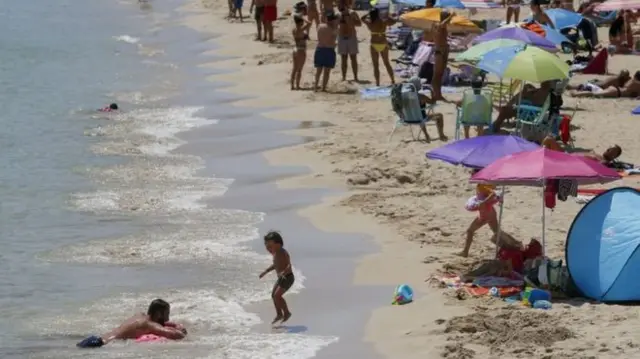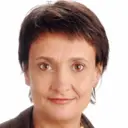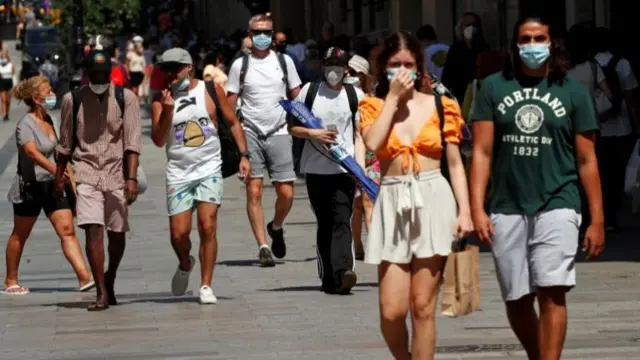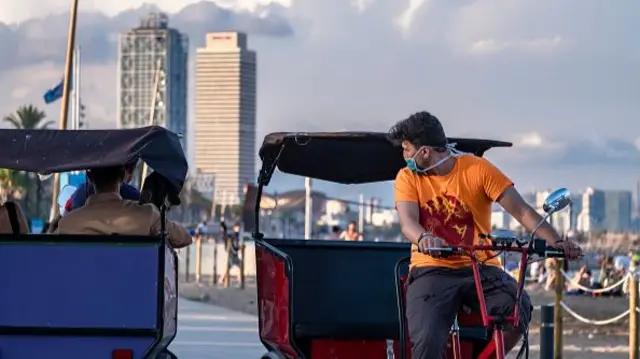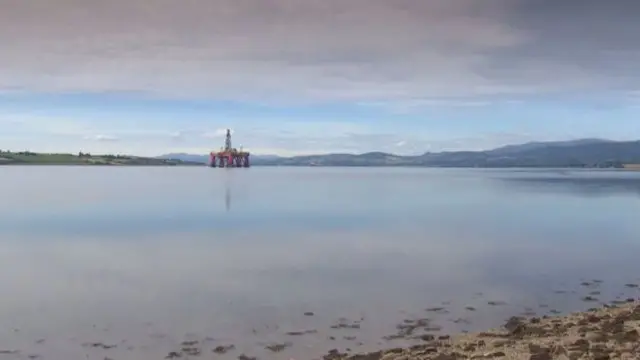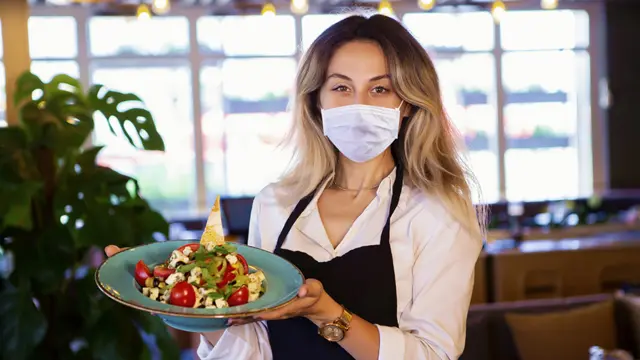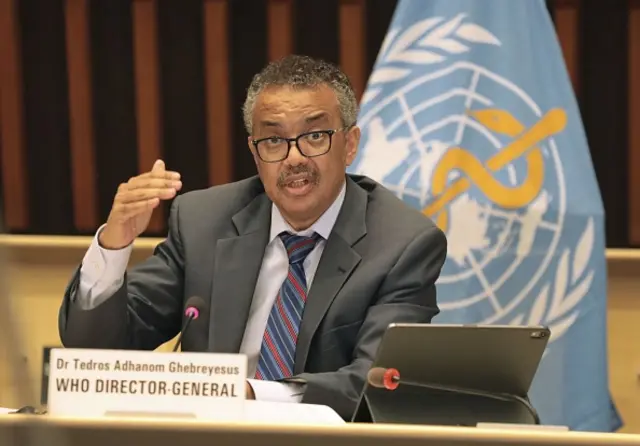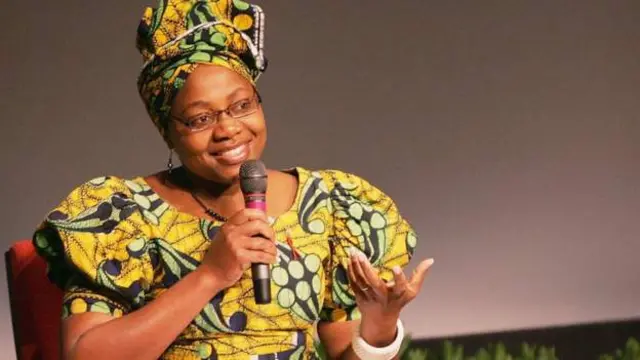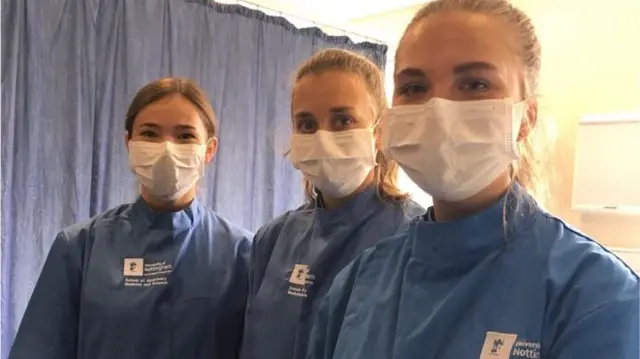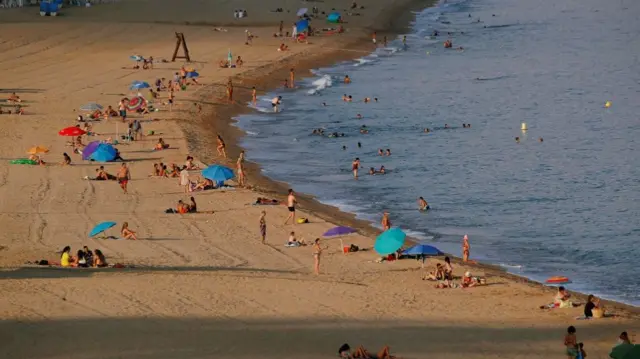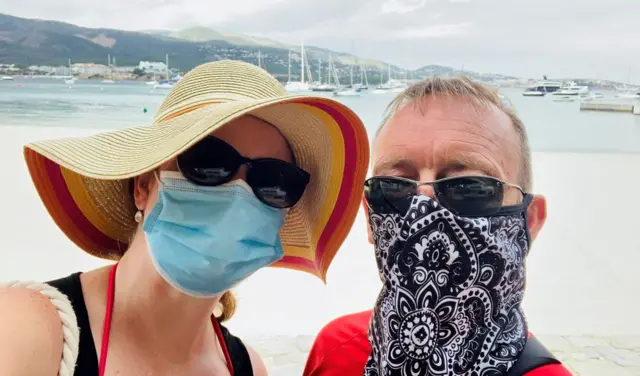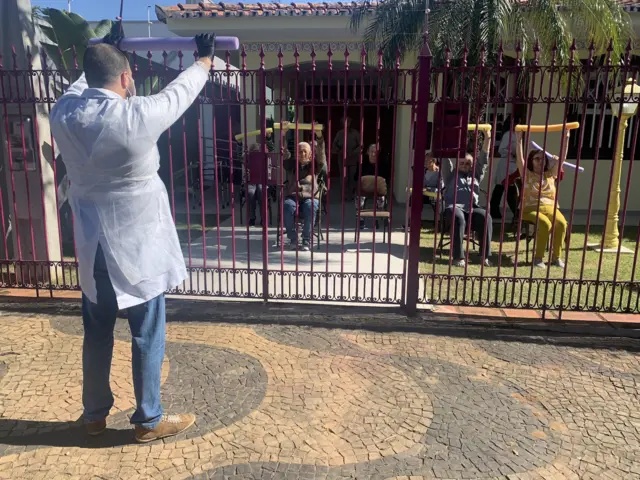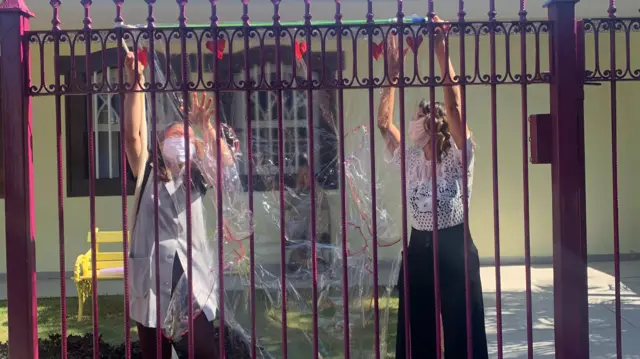Czech authorities to create central 'smart quarantine' bodypublished at 13:34 BST 27 July 2020
Rob Cameron
BBC Prague Correspondent
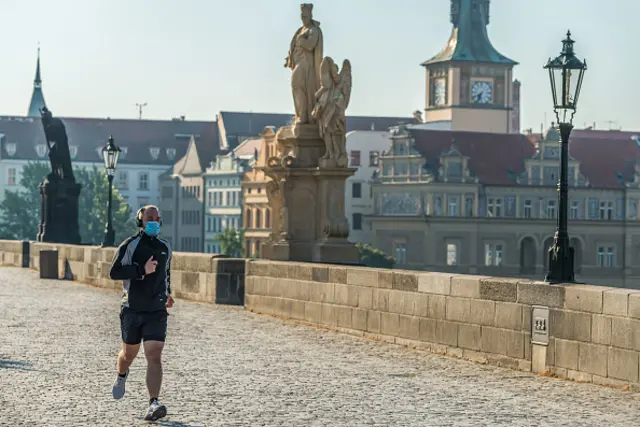 Image source, Getty Images
Image source, Getty ImagesCzech Deputy Prime Minister Jan Hamacek has said the government will create a new body to co-ordinate the country's much-criticised "smart quarantine" system.
Representatives of both the defence and health ministries will be represented in the body. Earlier calls for the system to be taken over by the army had been rejected by Health Minister Adam Vojtech.
"Smart quarantine" - involving a centralised database and contact tracing apps - was offered as a solution in the spring, but its introduction has been repeatedly delayed.
Meanwhile, authorities "audited" their Covid-19 figures over the weekend and found the number of recovered patients was actually 1,775 higher than previously reported. The total now stands at 15,324 cases, 11,429 of whom have recovered.
It came at the end of a week that saw new infections at well over 200 a day. Only 15 people across the country are in a serious condition or in intensive care. The vast majority of cases are asymptomatic or mild and coronavirus wards are about 10% full.
Prague has lifted incoming travel restrictions on Sweden from today, meaning all of Europe is now "green" on the Czech travel map.
Travel from the Czech Republic is currently being restricted by Estonia, Latvia and Cyprus, due to the increase in Czech cases.
